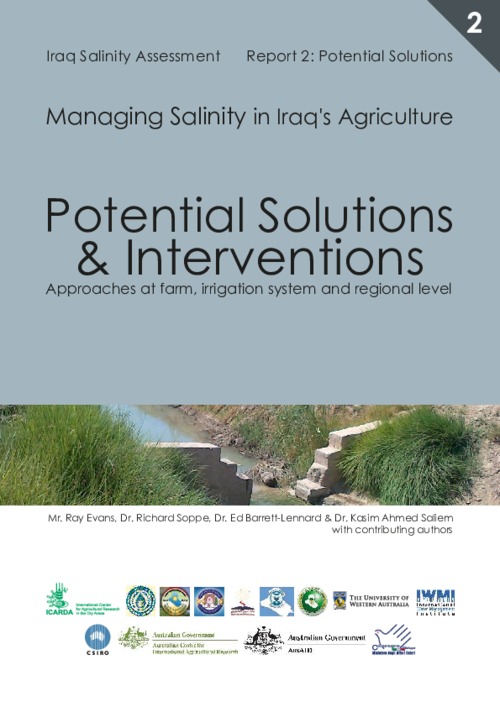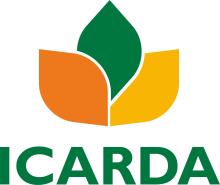Resource information
This report is the second in a series of three publications that comprises an overview of the Iraq Salinity Assessment. This report documents solutions and impacts identified in the first report in this series. The third report in the Assessment proposes investment options and methods to analyze the investment options to manage and remediate salinity in Iraq.
This report has been compiled from project contributions from a number of authors across all of its seven technical Components.
The Iraq Salinity Assessment synthesizes the results of the Iraq Salinity Project, a research partnership between five Iraqi ministries and national agencies and an international team of researchers, led by ICARDA, specialized in land and water management, crop improvement and plant breeding, and socio-economics.
This research builds on previous work and technical studies done in Iraq and on the expertise of Iraqi agencies working to promote agricultural development over the past decades. It provides solutions based on the analysis of historical data and new data compiled in the Iraq Salinity Project and provides methods of implementation to reduce salinity, or reduce the impact of salinity on agriculture and environment in Iraq.
The Assessment benefits from Australia's experience in dealing with similar salinity problems in its agricultural sector. The salinity situation and agro-hydrological problems faced by Iraq are similar to those faced in Australia's Murray-Darling river basin. Australia has tackled its salinity problem in a systematic way since the 1980's and today salinity is being controlled and reversed in many areas.
The solutions and implementations presented in this report are a synthesis of a body of research – field-level and technical studies in Southern and Central Iraq, a new body of data and information collected and compiled by the research team and a series of technical and background papers. All information related to this research can be consulted at Iraq.icarda.org.


